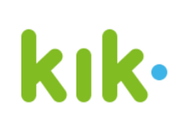
Cyber Tween
Meet Rachel
Hello, I am Rachel and I am a high school student. I will be your guide through this cyber learning opportunity. I enjoy teaching other kids about cyber topics.
The lessons I have created are based Lord Fairfax Community College Computer Science and Cyber Security courses and Safe Surfin' Foundation. They came from my desire to teach others around the world with teaching tools I have seen my own teachers use.
Best, Rachel
Digital Footprint
In the digital footprint section you will learn about digital footprints and your digital footprint. The knowledge you gain in this section will help you improve your digital footprint. In this section there may be references to other sections due to information fitting in multiple sections.
What is a digital footprint? A digital footprint is the trace you leave behind when you access the Internet of Things. The more you access the Internet of Things. the larger your digital footprint grows. The common ways you leave a digital footprint is browsing websites, online shopping, social media, and accessing the same websites from different devices.
While your digital footprint can benefit you it can also harm you. Your digital footprint benefits you because it makes it so that you don't have to repeatedly log in to accounts or repeatedly fill in your information on websites. However, your digital footprint harms you as it allows you to be tracked easier and makes your information easier to steal. Digital footprints are visible to everyone, so others can access yours and you can access others. Have you ever had an add pop up for something you bought when you were on a website? One of the reasons this occurs is because anyone can access your digital footprint. Companies will access your digital footprint to see what you like and then send you ads for products they believe you will buy.
Are you being tracked? Yes, you are always being tracked. As you access the Internet of Things you are leaving footprints. Companies, networks, and individuals follow your digital footprints and track where you have been, what you were doing, where you are, and what you are doing. They then use this information to develop a profile on you. This profile is then used to cater to you likes and dislikes. Have you ever wondered how the ads that appear on your screen seem to be things you looked at the other day? It is because you are being tracked through your digital footprint.
How much privacy do you really have? Really you have no privacy. Each time you share something on the Internet you give up a little bit of your privacy. However, you are giving up more privacy thing you think when you share your information. Normally, you lose your privacy to explicit acts, actions we take that we know cause us to lose our privacy. Common explicit acts that we all do daily are post on Facebook, send a tweet on Twitter, update our story on Snapchat and send an email. While these contribute to our digital footprint we also grow it through implicit acts. Implicit acts are actions we take, but don't realize that it will cause us to lose our privacy. Common implicit acts that we all do daily are searching Google and connecting to the wi-fi.
Social Media
In the social media section you will learn about important social media information and social media sites. The knowledge you gain in this section will help you make better choices and decisions on/about social media. In this section there may be references to other sections due to information fitting in multiple sections.
To get started take the short social media survey below.

 Facebook was founded in February 2004 by Mark Zuckerberg as The Facebook, but in August 2005 it became Facebook. Originally it was used by universities to help students and teachers get to know each other. As it gained popularity it spread to universities across the world and high schools. However, as the popularity continued to grow Facebook became available to anyone with an email address. Have you found yourself wondering how Facebook seems to know where you are? Facebook knows where you are because they are tracking you. Facebook is programmed to turn the camera on your device on when you are logged into your account. With Turning on your device's camera they get your location and view it on Google Maps. The location is so precious that it can track your device location to the exact spot it is in a building. Another downfall to Facebook can be found in their terms of service. In the terms of service it states that once you put a photo on Facebook you are giving all the rights of the photo to Facebook and they are able to use it how they want.
Facebook was founded in February 2004 by Mark Zuckerberg as The Facebook, but in August 2005 it became Facebook. Originally it was used by universities to help students and teachers get to know each other. As it gained popularity it spread to universities across the world and high schools. However, as the popularity continued to grow Facebook became available to anyone with an email address. Have you found yourself wondering how Facebook seems to know where you are? Facebook knows where you are because they are tracking you. Facebook is programmed to turn the camera on your device on when you are logged into your account. With Turning on your device's camera they get your location and view it on Google Maps. The location is so precious that it can track your device location to the exact spot it is in a building. Another downfall to Facebook can be found in their terms of service. In the terms of service it states that once you put a photo on Facebook you are giving all the rights of the photo to Facebook and they are able to use it how they want.
Myspace was founded in August 2003 by Tom Anderson and Chris DeWolfe. Myspace is a social networking website that allows registered users to share and view profiles, blogs,  photos, music and videos. Myspace was the predecessor to Facebook and many teens created accounts when it first came around. Now a days the accounts that many created are still open accounts and being hacked for personal information. These accounts are being hacked because people are no longer using their accounts, so the personal information is a easy grab. The best thing to do to prevent this from happening to you is to properly close your account that you are no longer using. If you are not sure how to do this then ask a parent for help or ask Myspace for help.
photos, music and videos. Myspace was the predecessor to Facebook and many teens created accounts when it first came around. Now a days the accounts that many created are still open accounts and being hacked for personal information. These accounts are being hacked because people are no longer using their accounts, so the personal information is a easy grab. The best thing to do to prevent this from happening to you is to properly close your account that you are no longer using. If you are not sure how to do this then ask a parent for help or ask Myspace for help.
 Instagram was founded in October 2010 by Kevin Systrom and Mike Krieger. Instagram allows registered users to share photos and videos with each other. A downfall of Instagram is that tweens are creating multiple accounts using fake names and personal information. These accounts have become known as Finsta account. Many tweens use the Finsta account to do the actions they have been forbidden from and to harm others. While tweens believe that adults cannot find these accounts they can and could be monitoring it without you realizing. The simplest way for them to find these is to open the Instagram app on your phone, tap on the profile, and then tap on the username. When they tap on the username a drop down menu appears that shows all of your accounts. Even though you may log out of the account the now have the name and can monitor it. Finsta accounts have been linked to many cyber bullying cases as tweens are using it to bully others with the hope of not getting caught.
Instagram was founded in October 2010 by Kevin Systrom and Mike Krieger. Instagram allows registered users to share photos and videos with each other. A downfall of Instagram is that tweens are creating multiple accounts using fake names and personal information. These accounts have become known as Finsta account. Many tweens use the Finsta account to do the actions they have been forbidden from and to harm others. While tweens believe that adults cannot find these accounts they can and could be monitoring it without you realizing. The simplest way for them to find these is to open the Instagram app on your phone, tap on the profile, and then tap on the username. When they tap on the username a drop down menu appears that shows all of your accounts. Even though you may log out of the account the now have the name and can monitor it. Finsta accounts have been linked to many cyber bullying cases as tweens are using it to bully others with the hope of not getting caught.
Pinterest was founded in March 2010 by Ben Silbermann. Pinterest is where registered users save photos, videos, recipes, ideas, etc. in one spot where they can access them later.  Many of those cool projects you see have come from how to's on Pinterest.
Many of those cool projects you see have come from how to's on Pinterest.
![]()
Tumblr was founded in February 2007 by David Karp. Tumblr gives its registered users their own blog where they can post text, images, videos, etc. in blog format.
 Snapchat was founded in 2011 by Evan Spiegel, Bobby Murphy, and Reggie Brown. Snapchat is a where registered users share photos and videos that after a certain amount of time disappear. However, when Snapchat says that the photos and videos disappear they are not telling the full truth. The photos and videos disappear out of the users sight on Snapchat. However, all the photos and videos taken with the Snapchat account are still stored on the device that the account is on. Also, when you save messages from Snapchat they are stored on the device that the account is on. Though every picture, video, message, and snap taken on and sent through Snapchat are stored on the companies servers.
Snapchat was founded in 2011 by Evan Spiegel, Bobby Murphy, and Reggie Brown. Snapchat is a where registered users share photos and videos that after a certain amount of time disappear. However, when Snapchat says that the photos and videos disappear they are not telling the full truth. The photos and videos disappear out of the users sight on Snapchat. However, all the photos and videos taken with the Snapchat account are still stored on the device that the account is on. Also, when you save messages from Snapchat they are stored on the device that the account is on. Though every picture, video, message, and snap taken on and sent through Snapchat are stored on the companies servers.
Vine was founded in 2013 by Dom Hoffman, Rus Yusupov, and Colin Kroll. Vine is where you can form short six second videos to entertain and inspire the community.
 Kik was founded in 2009 by a group of University of Waterloo students. The goal of Kik was making chat easy between Blackberry, Android, and iPhone users. This was the goal of Kik at the time because conversation between the three phone user groups was not able to occur like it is today. Now the goal of Kik is to become the app to used by teens in the community to communicate with each other.
Kik was founded in 2009 by a group of University of Waterloo students. The goal of Kik was making chat easy between Blackberry, Android, and iPhone users. This was the goal of Kik at the time because conversation between the three phone user groups was not able to occur like it is today. Now the goal of Kik is to become the app to used by teens in the community to communicate with each other.
 Twitter was founded in March 2006 by Jack Dorsey, Noah Glass, Biz Stone, and Evan Williams.
Twitter was founded in March 2006 by Jack Dorsey, Noah Glass, Biz Stone, and Evan Williams.
There are similarities and differences between all the different social medias that tweens use today. There is one similarity among all social media that seems to rarely be followed. That similarity is the required age of the user. When you read the terms of services they all say that the use must be at least 13 years old and have parent permission if under the age of 18 years old. Another issue that all social media is having is predators using it as a way to find there next victim. Predators are using social media to find their next victim because parents and tweens love to post all about their life.
Complete the activities below to review the information covered in the lesson.
Security
In the security section you will learn about network security and passwords. The knowledge you gain in this section will help you protect yourself against identity theft. In this section there may be references to other sections due to information fitting in multiple sections.
You can protect yourself and network by only connecting to secure and safe wi-fi. When you connect to a wi-fi you want to make sure it is one that will not damage your network or allow someone to steal your information. When connecting to wi-fi you should not connect to a public wi-fi unless you know it is a safe one. Examples of safe public wi-fi's would be your schools or local public libraries wi-fi. You should never just connect to a random wi-fi, weather public or secured. You should not just assume a wi-fi is safe because it is secure. Several people set up secure accounts with the goal of getting your information. When you go to connect to a wi-fi you want to make sure it is a safe and trusted wi-fi.
Lack of knowledge on how to develop a proper and secure password is a major reason why accounts are easily hacked. There is five rules you should always remember when it comes to creating passwords. Those five rules are: 1. the password should be seven to twelve characters long (unless otherwise specified), 2. the password should contain at least one uppercase letter, 3. the password should contain at least one lowercase letter, 4. the password should contain at least one number, and 5. the password should contain at least one special character. While it is tempting to put follow these rules by putting them in the common places in passwords you should not put them in these common places. The common place don'ts are: uppercase letter in the front of password, the number at the end of password, and the special character at the end of password. You should write down your username and password and store it somewhere safe and where you will remember it.
You need to protect your identity when you are online and creating accounts. When you choose security questions to you put true answers or fake answers? You have probably been told that you need to choose security questions that you actually know the answer to. However, you should not do this as it makes it easier to get your information. When you choose a security question it can be something you know the true answer to or something you don't. No matter what you choose to be your security question you should not put the true answer down. You should always write down the website, username, password, security questions, and answer to security questions. You should then store the paper you wrote in down on somewhere safe and where you will remember is at.
Social engineering is geotagging of pictures, background of pictures, and communicating to much information. Geotagging of pictures is where your device embeds in the picture the location, date, and time the picture was taken. Predators lurking on the web will use geotags to figure out your schedule. You should not share pictures that have a background that can give away your location. Pictures you share should have backgrounds that cannot let predators determine your location. Tweens communicate to much information online about what they are doing and end up putting their selves in harm. You share never tell the online community where you are going until after you have gone there. You should also not give a ton of details about what you did as it is an easy way for predators to find other people who where there and find you in their pictures. You also should not give a lot of details about things you are planning on doing as it gives predators places to look for you at.
To get started take this short cyber bullying survey below.

What is cyber bullying? Cyber bullying is using technology to intimidate, scare, or humiliate others. If you do not understand cyber bullying you should talk to a trusted adult. If you are a victim or witness you should report cyber bullying even if you are told not to.
Complete the following activity to review the information in the lesson.
Cyber (Computer) Laws
In the laws section you will learn about laws that are important to the cyber world. These laws will help you make better judgements when you are in the cyber world. The laws in this section may be referenced in other sections.
Generally, there are three major categories of cybercrimes that you need to know about. These categories include:
Most of these types of cybercrimes have been addressed by the IT ACT of 2000 and the IPC. Cybercrimes under the IT ACT include:
Special Laws and Cybercrimes under the IPC include:
There are also cybercrimes under the Special Acts, which include:
An important part of cyber law is intellectual property. Intellectual property can include areas like inventions, literature, music, and businesses. It now includes digital items that are offered over the internet. IP rights related to cyber law generally fall into the following categories:
Protecting IP can be difficult over the internet. An example of this would be the popularity of pirated movies and music. Each business that relies on the internet needs to develop strategies for protecting their IP. Governments can also take part in this process. In 1999, India did just this by updating their IP laws.
Technology is constantly updating. This means that laws must also be constantly updated. Although U.S. law has remained the same for a long time, five laws were passed in 2014:
Most of these laws were meant to update existing legislation. FISMA 2014 updated the framework for security controls. NCPA was meant for information sharing between the private sector and the government. The CEA was one of the most important bills. It may affect private organizations. This is because it promotes developing voluntary cybersecurity standards. This law strengthens the informal mission of the National Institute of Standards and Technology (NIST). The CEA also covers areas once covered by the Federal Financial Institutions Examination Council (FFIEC). Both the NIST and FFIEC were informal standards. The CEA is a law and more binding. This is particularly useful for resolving disputes resulting from cybercrimes. Businesses need to understand the rules of the CEA.
NSA Day Of Cyber
In this section you will learn facts about the NSA. The knowledge you gain in this section will help you better understand cyber careers at the NSA.
Please complete the following steps in order to register for the NSA Day of Cyber.
Now that you are registered you are able to begin the course. You are able to leave and return to the course at any point. Below are the items you will need to complete in order to earn your certificate stating that you are a certified student of the cyber experience.
Congratulations!!!! Hopefully, by now you have completed all the steps and earned your certificate. For more fun with the NSA you can try their CryptoChallenges.
Each week the NSA releases on their Facebook page a CryptoChallenge. CryptoChallenges are substitution ciphers that when solved you are left with a message or fact from the NSA. The NSA releases the answer to the previous weeks puzzle with the new puzzle for the week.
Challenge your friends and see who can solve the weekly CryptoChallenges the fastest. The weekly challenges can only be accessed through Facebook. If you don't have a Facebook account don't create one as there are other ways to solve CryptoChallenges. The weekly CryptoChallenges on Facebook only work on non-mobile devices. If you really like the weekly challenges or cannot access the weekly challenges there is an app you can get in the app store called NSA CryptoChallenge. The app has many CryptoChallenges that you can solve and you can learn a wide varied of knowledge.
These puzzles are not a required part of the course. However, they are a great way to learn more about the cyber world and the NSA.
The app is available in the app stores and works with most devices. There is ten different puzzle categories with a different number of puzzles in each category. The categories are: "Green" Facts - 20 puzzles, American Milestones - 31 puzzles, Business and Technology - 20 puzzles, Cybersecurity - 27 puzzles, Famous Quotes - 61 Puzzles, History of NSA - 45 puzzles, Pop Culture Trivia - 25 puzzles, Stem Trivia - 19 puzzles, Women in STEM - 33 puzzles, and World Culture & Cuisine - 20 puzzles. You can try all of these puzzles at the beginner, intermediate, and advanced level setting. The puzzles in the app are similar to the puzzles the NSA puts out for their weekly challenge.
Online Resources
Internet Society - https://www.internetsociety.org/tutorials
NetSmartz Teens - http://www.netsmartz.org/Presentations/Tweens
NSTeens - http://www.nsteens.org/Games
NetSmartz Parents - http://www.netsmartz.org/Parents
NSA's Puzzle Periodical - https://www.nsa.gov/news-features/puzzles-activities/puzzle-periodical/
Cyber Defense Quiz - http://www.carnegiecyberacademy.com/funStuff/quiz/academyQuiz.html
Cyber Defense Cryptograms - http://www.carnegiecyberacademy.com/funStuff/cryptogram/cryptogram.html
Dance Dance Malware - http://www.carnegiecyberacademy.com/funStuff/danceDanceMalware/ddm.html
Crazyman - http://www.carnegiecyberacademy.com/funStuff/crazyman/crazyman.html
Get Net Wise - http://www.getnetwise.com/
Safe Kids - http://www.safekids.com/
Web Wise Kids - http://www.webwisekids.org/
Safe Surfin' Foundation - http://safesurfin.org/